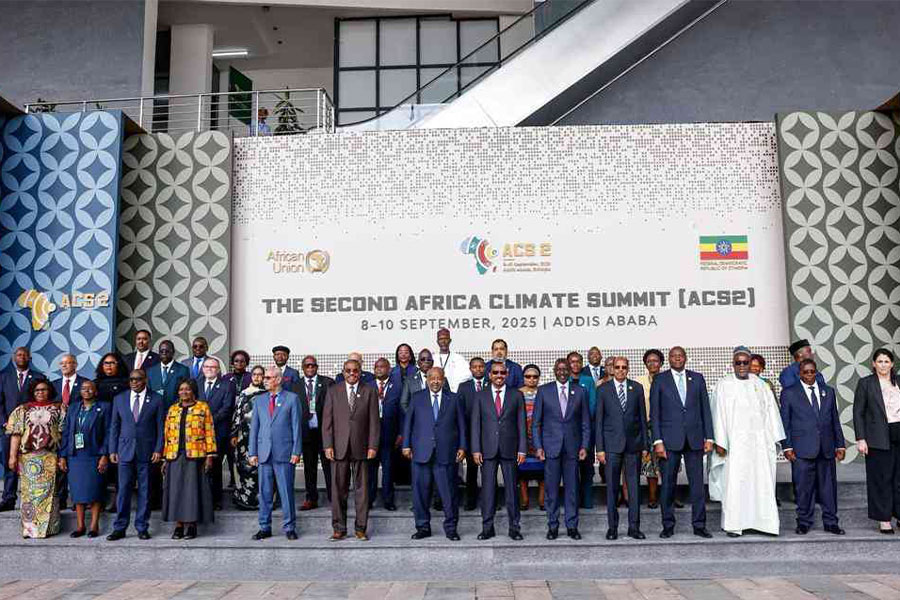
Fortune News | Apr 28,2024
Aug 22 , 2020
By Halima Abate (MD)
In the realm of public management, there is the never-ending concern to implement government policies effectively and efficiently to offer palpable benefits and changes to the public. The large scale of key functions that the government performs – from national defence and social welfare programmes to tax collection – have to be administered through a formal and rationalised process to make administration and governance possible and to keep records.
These operations are often revealed through a bureaucratic apparatus. It needs to be responsive to, adapt and shape the needs and demands of the public. It is a failure in this regard that often undermines developmental plans. It gets worse the further down the ladder a country is in terms of economic development and political freedoms. It is countries that have been able to address this fundamental problem that succeeded in putting in place an efficient system of administration and governance in the public sector.
Bureaucracy is a formal, legitimate instrument of rationality where a myriad of tasks of regular order ar processed. It is an indispensable element in the implementation of public policies and generates the surplus capacity to absorb the costs incurred as a result of the complexities of rationalised governance. Consideration of democratic governance as the baseline foundation for the formulation of bureaucratic ethics - participation, equality, accountability and transparency - are fundamental.
“Precision, speed, clarity, knowledge of the archives, continuity, discretion, unity, strict subordination, reduction of friction and costs with material and personnel,” wrote Max Weber, the famous political economist, “are brought to the optimum level in the strictly bureaucratic administration, especially in its monocratic form.”
Weber was arguing for the superiority of bureaucracy as a system of organisation in the use of the administration of the affairs of the state. This argument is barely ever uncontested, but the ethics that need to be utilised to inform the behaviour of the bureaucracy are rarely ever understood.
Considering Ethiopia’s developmental aspirations, the civil service class should be supplemented with technical standards and tools for accountability. This endeavour should be part and parcel of any strategic plan going forward. The bureaucrats are the gatekeepers of effective administration, and without bringing change there, it would be impossible to assure consistency and stability of any policy or long-term initiative.
However, politics complicates matters. The bureaucracy is an essential tool for the control of and deployment of state resources. It is critical for any sort of state capture of capital and the consolidation of political power. In this process, the bureaucracy will be co-opted and diverted away from its purpose of effective administration. Once it becomes a political instrument, the bureaucracy ceases to be rational.
Indeed, anyone in power has political interests and is looking to put in place policies that fit the calls and causes that they fought for. But a balance should nonetheless be struck between the provision of public services in a cost-effective and technocratic way, enhancing the capacity of the government machinery to carry out the core functions of the state efficiently manner and the ideological underpinning of the government in power.
Efforts in this regard should be exerted to formulate a well-performing bureaucracy characterised by horizontal policy development, integrated service delivery, managerial discretion and flexibility tailored to the particular circumstances.
This is partly a process of formulation of the bureaucracy as a class unto itself. The central tenets of this are rationalisation and transparent administrative systems. The combination of these makes it possible for the bureaucracy to respond to, be flexible and maximise the organisational capacity of the state.
PUBLISHED ON
Aug 22,2020 [ VOL
21 , NO
1060]


Fortune News | Apr 28,2024

Fortune News | Sep 10,2022

Featured | Aug 22,2020

Fortune News | Sep 19,2020

Sponsored Contents | May 22,2023

Radar | May 21,2022

Fortune News | Sep 21,2025

Fortune News | Aug 23,2025

Radar | Aug 26,2023

Editorial | Nov 25,2023

Photo Gallery | 180560 Views | May 06,2019

Photo Gallery | 170754 Views | Apr 26,2019

Photo Gallery | 161831 Views | Oct 06,2021

My Opinion | 137293 Views | Aug 14,2021

Dec 22 , 2024 . By TIZITA SHEWAFERAW
Charged with transforming colossal state-owned enterprises into modern and competitiv...

Aug 18 , 2024 . By AKSAH ITALO
Although predictable Yonas Zerihun's job in the ride-hailing service is not immune to...

Jul 28 , 2024 . By TIZITA SHEWAFERAW
Unhabitual, perhaps too many, Samuel Gebreyohannes, 38, used to occasionally enjoy a couple of beers at breakfast. However, he recently swit...

Jul 13 , 2024 . By AKSAH ITALO
Investors who rely on tractors, trucks, and field vehicles for commuting, transporting commodities, and f...

Nov 1 , 2025
The National Bank of Ethiopia (NBE) issued a statement two weeks ago that appeared to...

Oct 25 , 2025
The regulatory machinery is on overdrive. In only two years, no fewer than 35 new pro...

Oct 18 , 2025
The political establishment, notably the ruling party and its top brass, has become p...

Oct 11 , 2025
Ladislas Farago, a roving Associated Press (AP) correspondent, arrived in Ethiopia in...

Nov 2 , 2025
The National Bank of Ethiopia (NBE) has scrapped the credit-growth ceiling that had s...

Nov 2 , 2025 . By SURAFEL MULUGETA
The burgeoning data mining industry is struggling with mounting concerns following th...

Nov 2 , 2025 . By YITBAREK GETACHEW
Berhan Bank has chosen a different route in its pursuit of a new headquarters, opting for a transitional building instea...

Nov 2 , 2025 . By BEZAWIT HULUAGER
Nib International Bank S.C. has found itself at the epicentre of a severe governance...